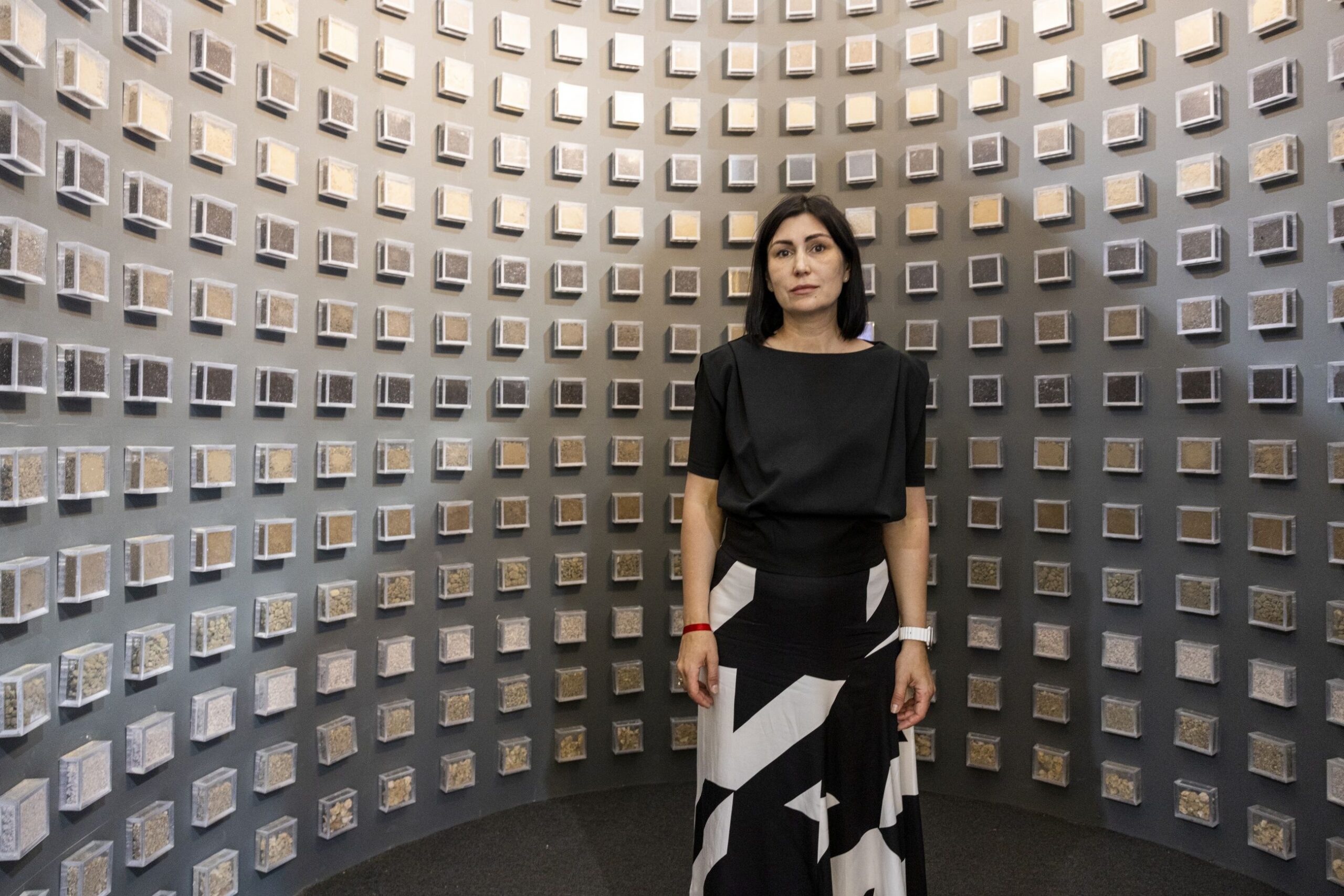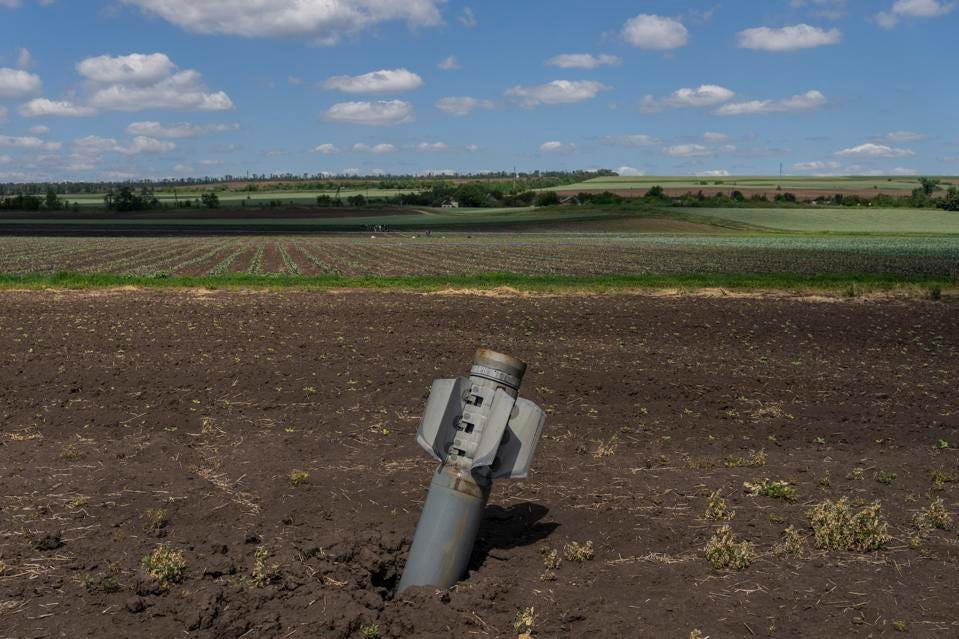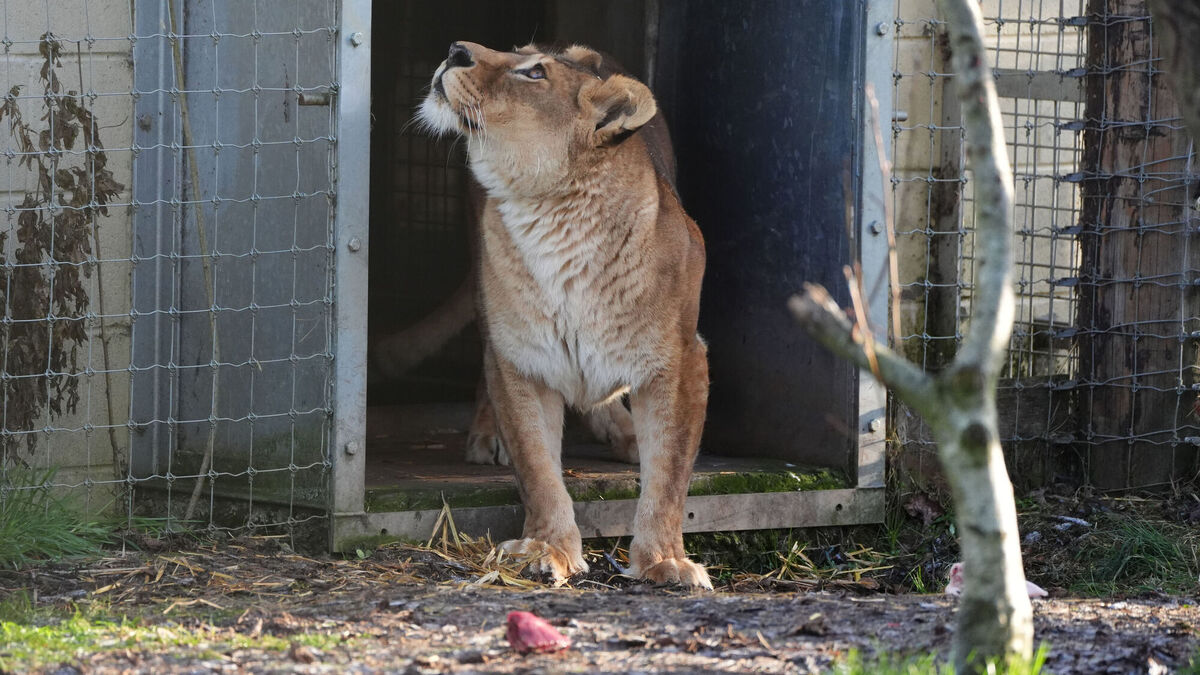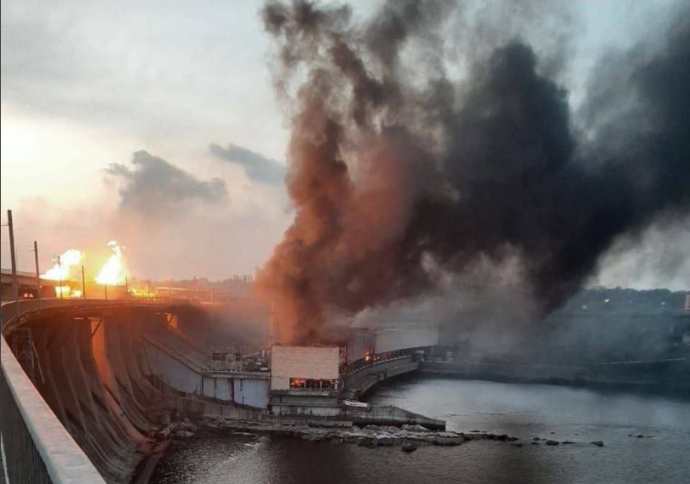UWEC Work Group Expert Angelina Davydova and her two colleagues Natalie Sauer and Boris Schneider co-host The Eurasian Climate Brief podcast. In their latest episode they spoke to Svitlana Romanko, an environmental lawyer and founder and director of the Ukrainian NGO Razom We Stand.
Svitlana spoke about the protests and campaigns in recent months, from calls for a total ban on Russian fossil fuel imports to confrontations with Total’s CEO and Russian delegates.
– To what extent do you think the war impacted the UN climate summit?
At the very beginning of the Russian war against Ukraine and now during COP27, it was really clear for us, for the Ukrainian delegation and many other activists who were supporting us over the COP, and actually many journalists as well, including international, that we must end the global fossil fuel addiction that also supports the war machine. In fact, deadly conflicts in other parts of the world as well, in Africa, in Latin America, and in many countries, actually have been funded, fed and fueled by the coal, oil and gas industries and are driving an invasion of my country right now and also the climate crisis that threatens the future of humanity. So this message was quite loud during COP27.
Especially when, for the first two days during the climate leaders summit, headed by heads of state. Almost everyone in the three-minute keynote speeches addressed the war in Ukraine, but they just addressed the issue of the war without proposing specific solutions.
And that’s why we held a press conference on the third day just to emphasize the need for real action instead of just declarations.
– Do you feel that that call has borne any fruit so far?
I would just say, we still need to do a lot more work and we were not discouraged that this call was not implemented in full and accepted it in full during the COP talks. What I see that happens so regrettably, so unfortunately, they’re pushing for gas in African countries specifically to substitute the European need for gas, something that is not possible to fulfill right now with Russian exports. This has become one of the major disappointments of this year’s COP27.
We as civil society are campaigning against the war in Ukraine, but also against the increased exploration for gas in Africa, because we don’t simply want to phase out Russian fossil fuels to end the war in our country, but also to phase out fossil fuels everywhere and not just to go to another place to explore them. I can say that that was one of the biggest disappointments. The second one was that fossil fuel lobbyists have surprisingly increased their presence to almost a quarter of attendees at the summit, and many of them were from Russia, Saudi Arabia, and also United Arab Emirates, who will host COP28 next year. So for me, it’s a very bad signal. Our partners published research showing that during the COP, 636 lobbyists were present. I don’t think that having lobbyists inside of a COP event will help us much to phase out fossil fuels and we were able to see that in the final Sharm-el-Sheikh implementation plan.
– Could you tell us more about the focus of the Ukrainian delegation this year and of Ukrainian activists in particular? You talked about the phase out of fossil fuels. To what extent did those two groups talk to each other Ukrainian officials and Ukrainian activists, and to what extent were their goals aligned?
For the first time in history, we had our Ukrainian pavilion. It was really highly attended by different political leaders and by different journalists as well. We try to collide our efforts and work all together, both with officials and civil society observers. Each was very fruitful and successful. Speaking of Razom We Stand, we just led strategic communications work and campaigning here at COP27. We hosted two high-profile events in our Ukrainian pavilion. They were just about rebuilding Ukraine with clean energy. We’ve also been talking about newly released data from our partners on Russian exports, especially oil, and the role of Turkey in creating an outlet for continued Russian fossil fuel exports to the EU and US despite sanctions. Part of our work was to push for a full embargo on oil and a full embargo on gas, which also included advocacy against new gas explorations and against new gas investments that are going to lock us into a high fossil fuel dependency for many years when they are approved.
We also were able to meet a lot of important political people who were attending our pavilion. For example, we met Franz Timmermans and spoke about a full embargo on gas with him. Many journalists visited the pavilion and that helped us bring our messages broadly, outside of the COP in general. So far we saw about 120 publications that reached about 20 million people each day. So I think that bringing our messages outside of the COP pavilion was really successful. We also co-organized a few actions with the Ukrainian delegation, and we worked all together to push for Russia’s responsibility for war crimes, including environmental and climate crimes as well, and also for developing some opportunities for increasing our climate goals and rebuilding Ukraine in a green way that could spark global momentum for a clean energy transition.
– And to what extent do you think these goals have a chance of materializing? I mean, there will be an evident interest for politicians and activists – politicians in particular – to appear to your side at the moment, just as politicians will like to post pictures with Greta Thunberg, for example. Do you think that the fossil fuel phaseout and a tribunal on environmental war crimes might ever see the light of day?
No, I don’t really see us as just posing for some photographs with political leaders, we are a part of political decision-making. And we are pressuring those politicians from the European Union and also the US to phase out fossil fuels everywhere. I think it could be quite successful. But as you know, in Ukraine, we just had a major blackout in our history, and currently eight million people are lacking access to basic electricity supply, especially in the city where I live: people have electricity for one or two hours per day. And it’s not only the eastern and southern parts of the country that are being affected by the war, but the country overall. I’m not even talking about the huge human losses and really huge destruction of many of our cities and infrastructure including energy infrastructure, and we are just now entering the winter season which is going to be cold.
So our primary aim is to end the war which we see could be done by cutting all financial flows to Putin’s and Russia’s fossil fuel industry. We are campaigning hard to get it and we have already got a coal embargo from the EU and a partial oil embargo. Now we are campaigning on an oil price cap; we want it to be gradually decreased to $20 per barrel.
We are also campaigning for a gas price cap and also insurance and maritime shipment bans for Russian vessels who still carry Russian oil to many countries, not only to the EU. The EU remains the main consumer of Russian fossil fuels, even though they have decreased their share significantly, but we can’t really rebuild “green” seriously until we end the war.
Cutting investments and business ties with Russian fossil fuels will pave the way to phase out fossil fuels everywhere. Because how we fight one powerful dictator and the countries that used to own the largest shares of oil and gas and that dominated global oil and gas supply shows how we can tackle dictatorships and the energy crisis for many years ahead.
– Let’s go back to the COPin itself. You took part in a protest action during Russia’s official side event which resulted in your UN accreditation being withdrawn. Could you tell us more about it?
This was a joint action of many activists: Ukrainian, Polish, German, and others. We knew that Russia would be hosting a side event. Before that we could not really see Russia’s delegates anywhere. They were at the COP, but they were just not visibly present to us at the COP.
I’m sure they did their closed door advocacy to push for more oil and gas and to weaken the sanctions against the Russian economy.
So during the protest action we spoke truth to power, saying that Russia is a terrorist country [committing] genocide and torturing and killing our people for nine months already, and they are killing our climate with their fossil-fueled war on us and that natural gas is literally killing us and killing humanity as well.
Many millions of people are [experiencing] multiple crises. All over the globe, there’s a cost of living crisis. There is a climate crisis for the most vulnerable. This is a crisis of peace. This is a huge destruction of my country, and I was not even able to to really express the grief that we felt when we looked into this delegation doing their business as usual, … just speaking about carbon capture from planting more trees. What are they talking about?
You wage a war on us for many months, with atrocities we have never seen before. And are killing our climate with missiles and emissions. I’m not even speaking about the price that Ukrainians are paying to stay resilient and to fight for our freedom, but still, missile emissions, military emissions, and emissions from gas burned at the Finnish border, when the EU rejected its purchase, and Nord Stream pipelines being damaged.
It’s really good that they have been damaged, but not good that they were built [to begin with]. All of Europe has a dependency on Russian fossil fuels, while the Russian official delegation spoke about the emissions that they are not going to cut and just about planting trees. For me, it’s just the highest form of hypocrisy. Of course we stood up and we spoke. I just said that you must not be here but rather stand in front of the international court, and you must be held responsible for environmental crimes and the crimes against humanity as well.
And after us, a BBC journalist asked explicitly if Russia is going to compensate the environmental crimes and loss and damage that they [inflicted on] Ukraine, and he was also removed from the room and his accreditation was suspended.
So I don’t think that we could speak freely in a public event to public persons who were there to give explanations. This is the first thing. The second thing is that I’m not stressed at all because we planned to walk out. We didn’t want to stay and listen to them. We just wanted them to listen to our messages directly. Because it’s kind of achieving justice when you speak directly to your offender and you [offer] this choice. It could bring you justice. It could show that a million people that we still have hope and we are fighting for justice.
The final thing on this – this action made national news in Europe and the US. I was told by people from Ukraine and across the world that this action inspired them to also stand up, speak the truth to power, and take action for justice.
When we interrupted Russian officials they just calmed down, and they just listened. They didn’t say anything. They just listened and were not expressing any emotion, but I think they did not expect it, of course. And actually, young activists, especially from Ukraine who were attending this side event, were so brave. I admire these young people so much, because there were many people actually sitting and they all stood up and started to walk out.
The case is, though, that half of attendees at the event were from the Russian delegation, including Gazprom and Rosneft representatives. I’m happy that they were able to hear this message.
– Were there any other protest actions that took place during the COP in relation to the war?
Yes, there was the one action against the fossil-fueled wars and for peace and tackling the climate crisis that we co-organized with the Fridays for Future and other movements. It was captured by many news outlets across the world, because it was the only action that Ukrainian activists organized that was directly related to the war. But of course, there were many dozens of actions where we participated as civil society. But at COP27, we were only able to [conduct] actions inside of the COP, in the UN territory, not outside of the COP in Egypt.
– So that demonstrated a wider theme of the crackdown on freedom of speech and activism in Egypt. We also saw you asking uncomfortable questions to some business representatives, including from Total about their work in Russia. Can you tell us in detail what you asked?
– Yes, I asked just one sentence, one question. “Will you use your Russian blood money to rebuild Ukraine?” That was to Patrick Pouyanné, CEO of Total Energies. He also did not expect this question and he was really surprised. So that means that we will continue pushing for it, also with many other companies, including Wintershall in Germany, including British Petroleum in the UK, for diverting their blood money to rebuild Ukraine. It’s not an ideal solution, I would say, but it’s something that could be done to make them learn a lesson that no blood money can be made on people’s death and destruction of a country.
– Are you still in touch with them over that? Are you keeping the pressure on them?
Yes, we are. We are doing this constantly. In late April, May, we blocked the TotalEnergies [shareholders] meeting in Paris. And we made an action there with many activists from international organizations. So this meeting did not happen at that time. And after that, we filed a case with French lawyers against TotalEnergies for complicity in and funding Russian war crimes as well. This case was filed with the prosecutor on terror and war crimes in France, and we expect his office to start an investigation which will really help us to prove that Total is complicit indirectly in supplying Russian war plans.
– This is very impressive work. So Svitlana, for the first time since the beginning of UN climate negotiations, a so-called loss and damage fund was set up. What do you make of this and who is going to finance that fund?
I just can only say that, yes, this is a good decision that has been finally made after multiple requests from many civil society activists and policy organizations. But what I really wonder is how we came to this point or why developed countries are not able to cut their emissions and to phase out fossil fuels or investing in those phase out efforts better than just creating loss and damage to the countries that are currently struggling to meet their needs, mitigation included.
I am an environmental lawyer and campaigner, and I think it would be a much more effective solution to prevent loss and damage rather than tackling it afterwards. And as far as I know, there was a big gap in making the promises and fulfilling these promises. Because since 2015, this promised money has not been [deposited] into loss and damage funds. So hopefully, this fund would make some change for the countries that are suffering the most. But I think that we, in general, need to rethink the overall framework of how we hold developed countries accountable for their high emissions.
– Many commentators were referring to exactly this fact that you just pointed out that no real phaseout dates or decisions were made regarding fossil fuels, like no limits were agreed. And some commentators even called this COP, another wasted opportunity, another wasted year. So it really seemed to many that this loss and damage fund is almost a kind of compensation for the fact that we don’t have a limit on fossil fuel extraction. Is this also your perception that this was mainly done, because there seems to be just no political will, or, let’s say, political opportunity to credibly limit fossil fuel extraction on a global level?
I can say that there is a political opportunity, and there is some willpower from some countries. We saw that India, just this year, expressed some willingness to phase out fossil fuels, because they were among 80 countries who [supported] a fossil fuel phaseout in the final decision.
It’s definitely a unique opportunity to dramatically change our economy and politics and drive a clean energy transition everywhere. And we knew it since the war started, because we just started foreseeing that this could be a pivotal moment and turning point in tackling global energy consumption and the climate crisis at the same time.
Later, this was confirmed by the IAEA director [who took this] role just recently. He said that the data shows and proves that we have this window [of opportunity] open for a clean energy transition everywhere, we just need more investments, and more political willpower. I think it’s already there. But we will use the current [wave] to make enormous civil society pressure on the demand side, but also on the supply side of fossil fuels.
Secondly, I am on the optimist side, I’m not really disappointed, because it’s not the first COP I have attended. And I know that talks are talks and that real action is something really different. Here, I am also currently with those who called [for people] not to be disappointed with the results of the COP because you’re sending a bad signal to the investors. They are saying that, we’ve lost everything, we cannot do any major change so we can keep investments in fossil fuels. No, we should not. And I am on the side of those who are saying that we should not make any new investments in fossil fuel infrastructure. This will be the major change we expect when these financial flows can be diverted to renewable energies instead.
And that’s how we can all break free from fossil fuel dependency, from fossil-fueled wars, and how we will be able to end the war in my country when we completely decrease Russia’s economic profits on fossil fuels. And we will keep their carbon [reserves] sitting in the ground. They still have 20-23 carbon [reserves] that have not been activated. And we just want them to never be activated and keep fossil fuels in the ground. And this will be a signal to all other powerful fossil fuel dictatorships, such as Saudi Arabia and United Arab Emirates, that now there is no way for new infrastructure for oil and gas and coal anywhere in the world.
– So if I understand you correctly, you point out that those who are on the outside of COP are disappointed that you’re in and out again and again. But you actually say that the main work, or a large part of the work is being done in between COPs. So we shouldn’t focus too much on maybe the failure of certain declarations at each COP, but then actually look at what real work is being done in between the summit.
Yes, of course, of course, this is still our chance, as a civil society, when we cannot always be present at negotiations in the COP27 official zone. We just have a different status and can’t be a party in these negotiations, but we still can do our work in between COPs to amplify and leverage this work for the next COP.
You are very right in saying that a lot more needs to be done before the next COP, (which will be in the United Arab Emirates), their delegation was one thousand people or even more during COP27. The next thing we would like is to ensure that we have access as civil society to all policy decision-makers, and we visited their offices during COP27, we talked to them directly. We advocate for tackling the climate crisis and phasing out fossil fuels, and we keep continuous public pressure on them.
And if we are speaking about Ukraine, we’ve been really trying to emphasize the need to rebuild Ukraine “green,” because our government is currently making the plans of how to fulfill the needs, for example, for housing for people, for heating, and for everything. We would like to rebuild a kind of a new economy, a green economy, which won’t be based on fossil fuels…. Currently, 40% of [Ukraine’s] energy infrastructure is destroyed. We hope to spark global momentum for resilience and the fight against petro-dictators and petro-colonialism.
Main image credit: Klassekampen








Comment on “The Eurasian Climate Brief Interview with Svitlana Romanko”